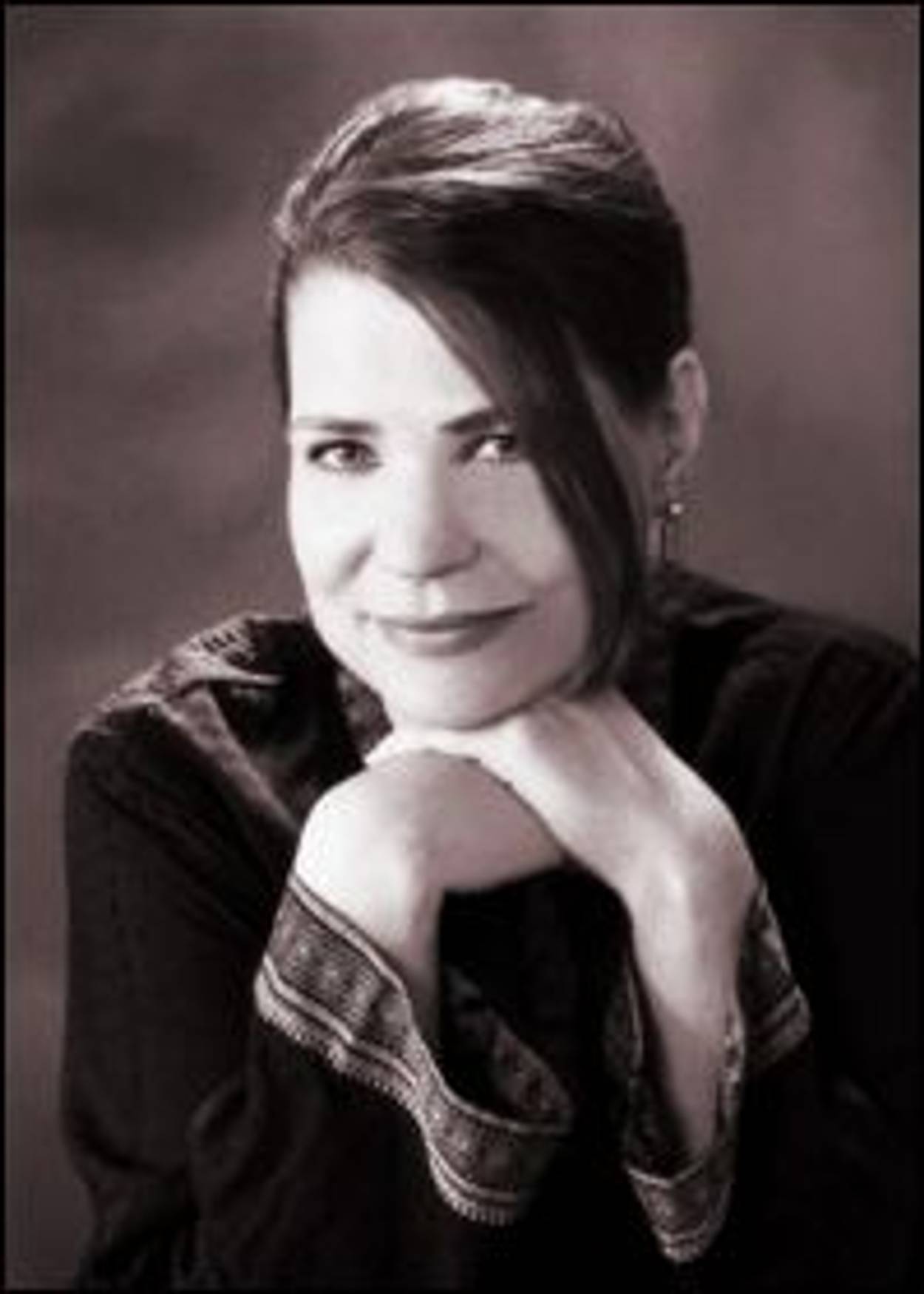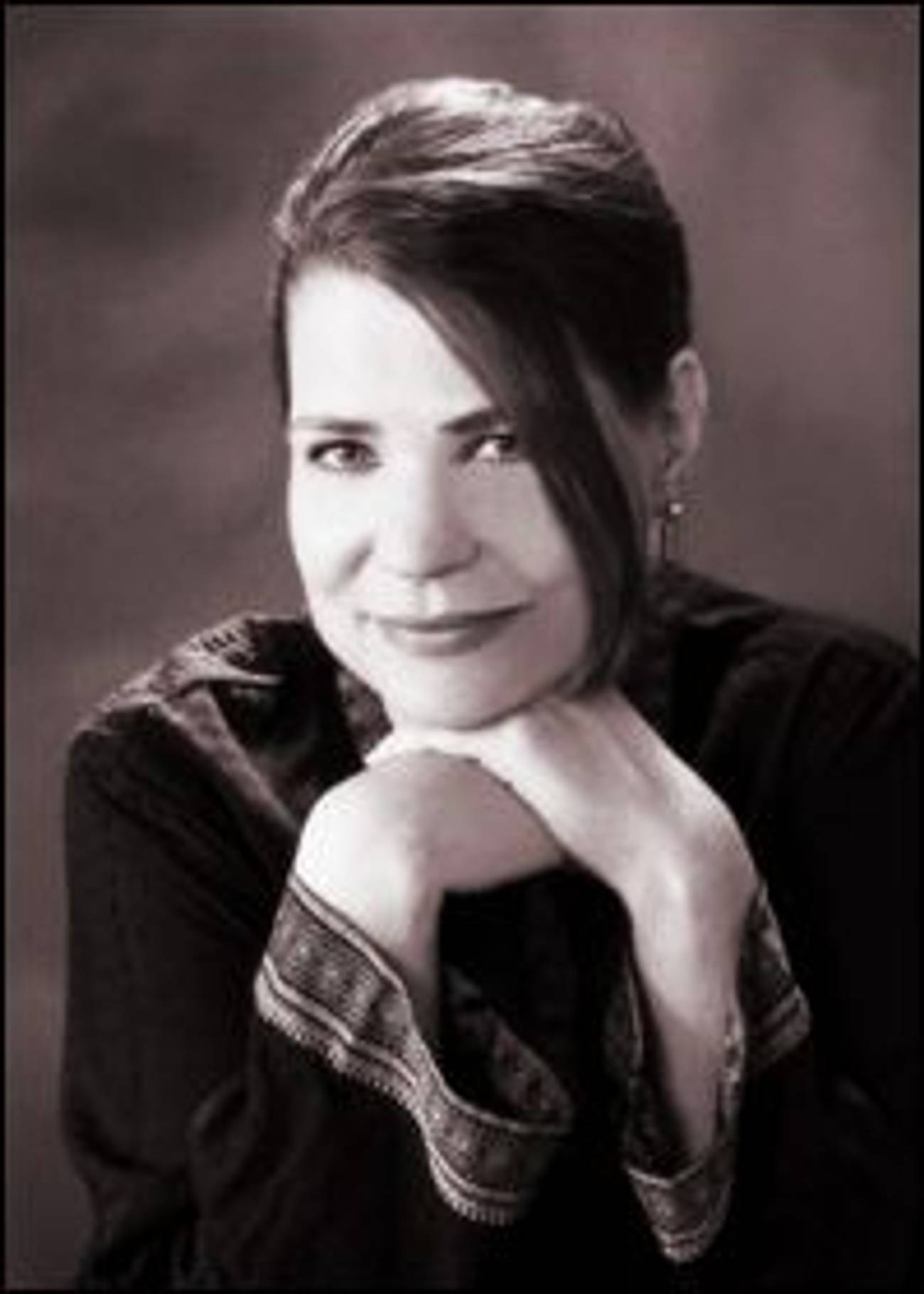From Bethlehem to Jerusalem
Set in a hardscrabble mining town, Bathsheba Monk’s stories chronicle a Polish Catholic girl’s mounting interest in Judaism




Born in Pennsylvania coal country and raised in the Polish Catholic community of Bethlehem—her parents worked in the area’s steel factories and fabric mills—Bathsheba Monk spent her late teens struggling to find a way out. One day over lunch, a crooked uncle handed her an envelope with $25,000 in cash—a loan, interest-free provided she flee town and never look back. Her travels since have included lengthy stays in Israel and Europe, where, in 1984, inspired by the examples of Israeli women soldiers, she served with the U.S. Army. Four years ago, she returned to Pennsylvania and began refashioning her early experiences into short stories.
Her debut collection, Now You See It: Stories from Cokesville, PA, tracks the grim realities of life amid the slag heaps. One character falls—or dives—into a vat of molten steel; his family is given a 175-pound ingot rather than a corpse. Another man disappears one night with a traveling magic show. A lonely old woman poisons the local dogs. A star football player turns down scholarship offers when his girlfriend gets pregnant. The collection’s central character, Annie Kuziak, is so flummoxed by the brutality of her environment that she doesn’t speak until she’s four.
Threaded through several stories is another class of townspeople: the wealthy Jewish mill and factory owners, with their book-lined offices, their union sympathies, and their inclinations toward workers, like Annie’s mother, who evince “chutzpah.” For Annie and her best friend, Theresa, Jews come to represent culture, class, privilege. Theresa moves to Hollywood and marries a Jewish actor, while Annie finds a Jewish boyfriend and starts the process of conversion (as did Monk). When the boyfriend dumps her, she keeps meeting with the rabbi, wondering, “If I wasn’t Jewish, what was I?”
It was like an audition. I had to see if I could live there because my American Jewish boyfriend wanted to emigrate. He didn’t come with me. That was part of the deal. I had to love Israel without him. I was really young and I can safely say I was looking for an identity. If you want to make some correlation between Annie Kuziak and me you can.
How did the audition go?
I stayed with friends of my boyfriend and briefly worked on two kibbutzim, where I was very lonely. The Jewish kids were celebrating their Jewishness one way or another, and the other volunteers would drink all the Shabbat wine they could lay their hands on. I didn’t fit in. I started to convert, had a couple of very entertaining sessions with a rabbi, but it was, frankly, too overwhelming. In Israel I got the sense that a very old, very real drama was being acted out. But it wasn’t my play.
Have you converted since?
That was my one fling with Judaism, though I am married to a Jewish man right now. He was quite secular before, but I think I’ve made him more Jewish. We’ve only been married for a couple of years, but we celebrate some of the holidays with his relatives.
What drew you to Judaism? Or, I suppose, to Jews?
There weren’t many Jews in my high school in Bethlehem. Maybe ten, if that. I worked on the high school newspaper, and the sports editor was this Jewish kid who was very funny—which I liked; this humor I could really identify with. Anyway, I wouldn’t say I had a crush on him, but I thought that when the prom came up we would go together. Then his parents told him he was expected to take a Jewish girl.
Coming from the background I did, where my parents kept their heads down working, having an identity seemed almost a luxury. You had to have time to think about it. And Jews always seemed to know who exactly they were. There was a flavor to Judaism that I found appealing and which I didn’t see in almost any other group I knew. And they were so brainy. As someone who liked to read and to talk about ideas, I found that tremendously appealing, as Annie does.
The other characters in your stories don’t really see the appeal. They’re a little afraid of the wealthy mill owners.
Well, my parents were really from peasant working-class stock, and always dependent on others for their living. Other people would build the mills and they would work in them. My family always prided itself on being very hardworking. Part of that thinking, from their perspective, is that you’d be loyal to the bosses and work for them till you died. But there was also this fear. My father wouldn’t fill out these financial aid forms for me to go to college because he was—I think “paranoid” is too strong a word to use here—but he wanted the government to know as little as possible about him. It wasn’t so much a fear of Jews as a fear of authority, so maybe the Jews were lumped in with that.
Were you aware of the class divide between Jews and non-Jews growing up?
Yes, absolutely. In town they owned the mills, and we worked in them. That was pretty clear to me—although I don’t remember making value judgments about it. Later on, as I talked to Jews, they would say things like, “my father was a lawyer and went to work for the steel mills but found out pretty soon he would never advance in that culture.” Because it was a very WASPy sort of place, they had to start their own businesses. I think the Jews were shrewd enough to know where they could and couldn’t advance.
Did you feel nervous about writing Jewish characters? Worried you might be accused of stereotyping?
As a non-Jew, I think I can say certain things that Jews can’t say. One of those things is this: A culture like ours, which is predominantly Christian, and faith-based, inevitably creates people who believe unquestioningly in authority. They believe it in their religion; they believe it in the government. Which may be why we’re in the mess we’re in right now.
My perception, on the other hand, is that Jews question things. Like my husband’s family, who now get in these loud, passionate arguments about truth and reality. This sort of dialogue is what keeps democracy alive. And it seemed like there were many Jews who were involved in workers’ rights at the beginning of the last century—which benefited my family—and of course in the civil rights struggle of the 1960s.
When did you first begin to question things?
Well, since I was always reading and always in the library, eventually I came across Anne Frank’s Diary of A Young Girl. You have no idea how extremely disturbing the book was, especially to someone who was on the other side of the fence, so to speak. I was about nine years old, the age when good Catholic children are preparing to be confirmed in their faith. But I was totally disillusioned. How could I be part of a people who didn’t condemn this terrible evil? How could they act as if nothing happened? I wondered if, put in that situation, I could’ve found it in myself to help them, even if that meant giving up my own life. The priest who I asked this question of told me that, of course, I’d do the right thing. But it was always a question in my own mind.
Have other Jewish writers influenced you?
The one other story that sticks in my mind is Bernard Malamud’s “The Jewbird.” The person in that story is conflicted about being Jewish himself, and then the bird comes along and confronts his sense of himself of a Jew. He doesn’t want to deal with that; he just wants the bird out of the house. What this revealed to me about Jews was this sense of a love-hate relationship to their identity. Or maybe that’s too strong a term, maybe it’s just denial-acceptance. As in: “I’m part of this great in-group that’s accomplished so much but we’ve also been so persecuted. So how much do I really want to be in there, how much do I want to come out and say this is who I am?”
Why did that resonate with you?
Being a writer you’re always sort of an outsider anyway. You feel an empathy with any group that you perceive as being outsiders. I have empathy with: “Do I want to come out and say this or do I want to simply put on my muumuu and go to the factory?”
Your stories are admittedly autobiographical. How would you explain the relationship between fact and fiction in Now You See It?
I had tried to write other things. I had a mystery novel out there, and an action-adventure novel. And the response I always got was: Why don’t you try writing real literature? It wasn’t until I moved back to the area four years ago that these stories started just popping out. And people responded more to them, probably because they were true. Annie’s trajectory as a writer was mine, too. She had to leave to realize that this is where her truth north was. I could reinvent myself, I could be married several times, but this is who I was. I guess that’s so American, to reinvent yourself.
Speaking of self invention, Bathsheba Monk is a penname. Were you thinking of King David when you took it?
The connection to David was purely subconscious. It seemed like a name that had a little bit of scandal attached to it, but no one was quite sure why. And I’ve always been attracted to those Old Testament names. I’ve used it now for a couple of years. Even my mother calls me Bathsheba now.